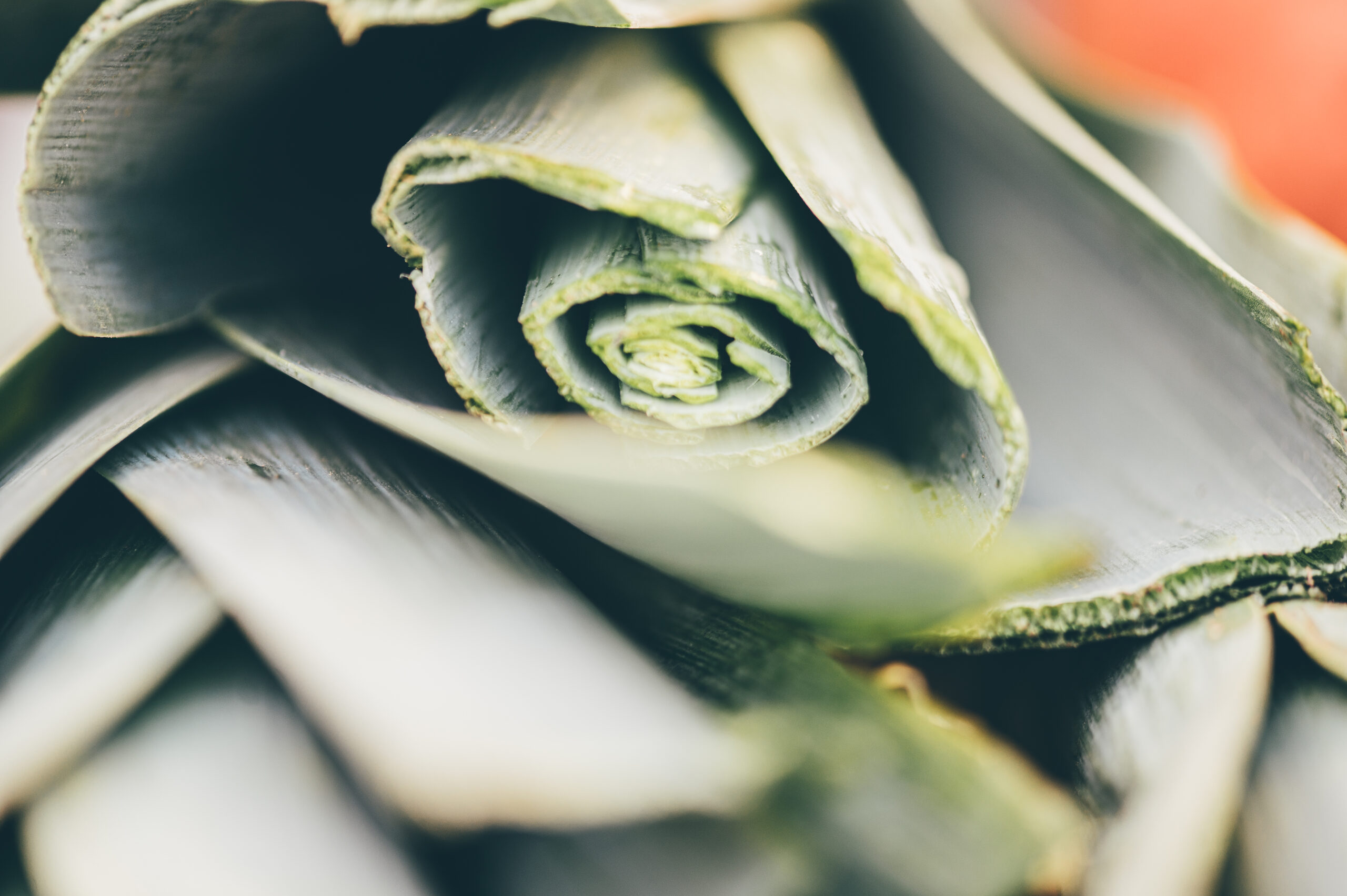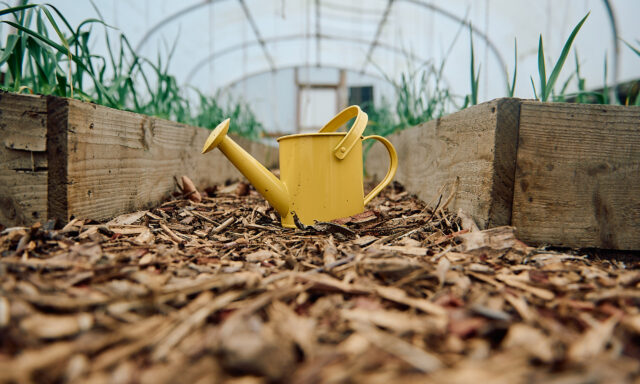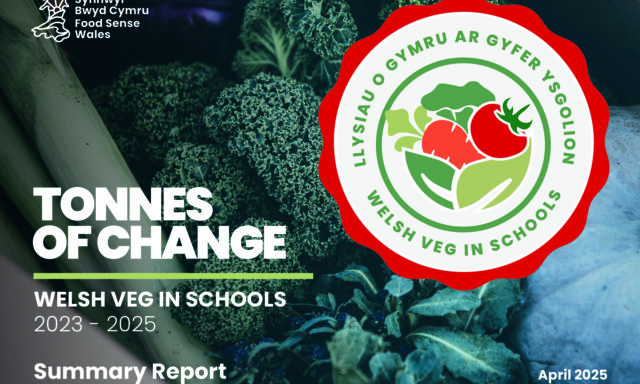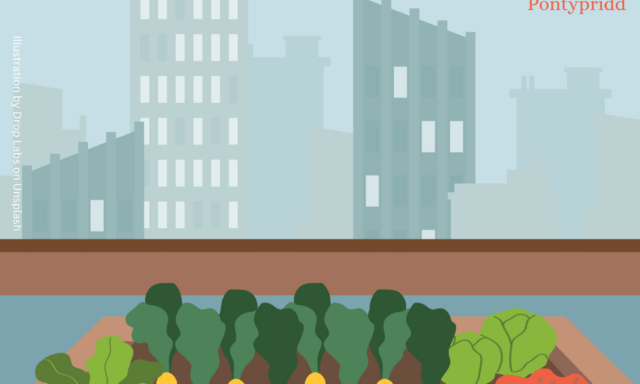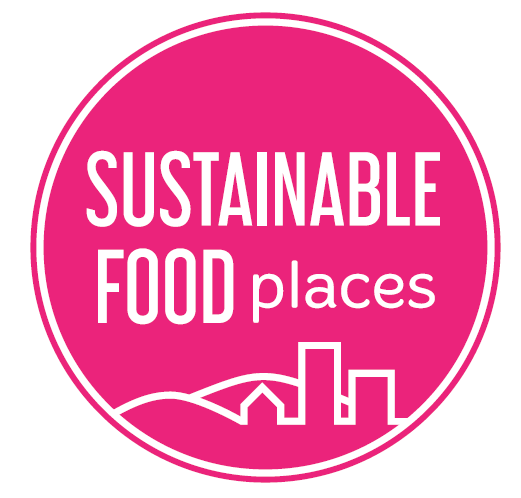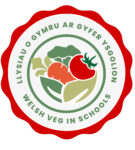Food Sense Wales works with food systems leaders in Brazil to develop and deliver the ‘Leekit’ project in Cardiff
Ahead of St David’s Day, Food Sense Wales has been delivering a new and inspiring food initiative called the Leekit at Pentrebane Primary School as part of a pilot project that’s been co-produced with the Instituto Maniva in Brazil.

The Leekit has been inspired by the Tapiokit, an education workshop developed by the Maniva Institute focusing on the food culture of cassava. Chef, food activist and academic Teresa Corção from the Institute has been in Wales all week to help deliver the workshops to teachers and pupils to see how their approach to engaging children with local produce can work with a different type of vegetable in a different country with a unique food culture and heritage.
Having been re-developed and tailored specifically for teachers and pupils in Wales, Food Sense Wales has worked with Teresa Corção along with a team of prominent Welsh food leaders to give the Leekit a distinctive Welsh flavour, including food historian Carwyn Graves and the Dietetic Team at the Cardiff and Vale University Health Board.
Teresa and the Wales-based team of authors met with teachers from Pentrebane Primary School in Cardiff to run a training workshop on the Leekit before helping the teaching staff to deliver sessions to children in years 2 and 4.
What is Leekit?
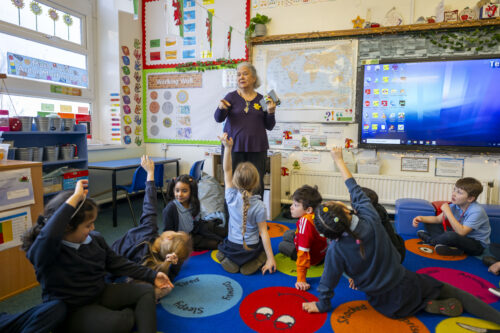 With a focus on leeks, the children have learnt to cook with the vegetable; learnt more about its nutritional value and its health benefits, while also exploring its rich history and deep Welsh connections. The aim is to introduce children to their food culture, immersing them in their very own food stories and connecting them with where their food comes from.
With a focus on leeks, the children have learnt to cook with the vegetable; learnt more about its nutritional value and its health benefits, while also exploring its rich history and deep Welsh connections. The aim is to introduce children to their food culture, immersing them in their very own food stories and connecting them with where their food comes from.
This collaborative trans-continental project is funded by the UNDP’s Conscious Food Systems Alliance (CoFSA) – a movement of food, agriculture, and consciousness practitioners, convened by UNDP, and united around a common goal: to support people from across food and agriculture systems to cultivate the inner capacities that activate systemic change and regeneration. The Leekit offers an opportunity to learn from some of the pioneering work being implemented in Brazil and explore whether Wales could look at food in a similar way, specifically through harnessing the Well-Being of Future Generations Act.
“We’re so pleased to be partnering with Teresa and her colleagues from the Maniva Institute,” says Katie Palmer, Programme Manager at Food Sense Wales and a member of CoFSA’s Inner Council.
“Wales can learn so much from Brazil and the work being done with schools across the country. The Brazilian Government has recognised the importance of food for health and local economies and has invested heavily in the food infrastructure there. Having the opportunity to work with food systems professionals such as Teresa is invaluable. The Leekit offers the chance for children to better understand Wales’ food culture and start to think about the food their eating, how it’s been grown and how it’s nourishing them.”
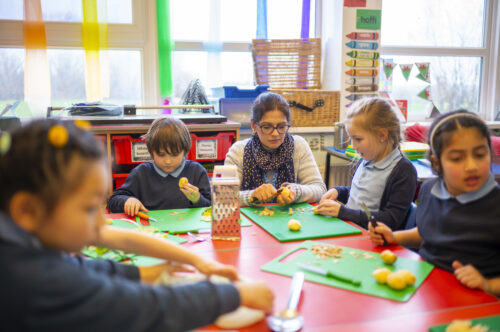 Andrew Bovarnick, Global Head, Food and Agricultural Commodity Systems, UNDP says: “This collaboration between two members of the Conscious Food Systems Alliance is a great example of the creativity and inspiration that emerges when teams from different cultures and natural environments share similar values and purpose. This training will be a useful tool for harnessing consciousness approaches in support of healthy diets with the youth.”
Andrew Bovarnick, Global Head, Food and Agricultural Commodity Systems, UNDP says: “This collaboration between two members of the Conscious Food Systems Alliance is a great example of the creativity and inspiration that emerges when teams from different cultures and natural environments share similar values and purpose. This training will be a useful tool for harnessing consciousness approaches in support of healthy diets with the youth.”
Brazil’s National School Feeding Programme
In Brazil, the National School Feeding Programme (Programa Nacional de Alimentação Escolar or PNAE) provides nutritious, healthy and locally sourced food to millions of students across the country. The programme’s operated by the National Fund for Education Development, an independent body within Brazil’s Ministry of Education.
According to the United Nations World Food Programme report published in 2020, the Brazilian National School Feeding Programme caters to more than 40 million students, in more than 160,000 schools, across 5,570 Brazilian municipalities.
With an annual budget of more than R$ 4 billion (US$764 million), the programme is responsible for the daily offer of 50 million meals, planned by more than 8,000 nutritionists and monitored by 80,000 School Feeding Board members. The programme ensures the provision of a healthy and varied diet to all students in public education while also promoting healthy eating habits – impacting students as well as their families. It also encourages the use of locally grown produce and since 2019, at least 30% of food purchases for school meals comes from family farmers helping to ensure resilience in the local supply chain.
“The way in which the Brazilian Government has invested in the school food system has not only enabled children to access nutritious meals in school, it’s also managed to reduce obesity rates while simultaneously promoting healthy eating habits and ensuring that children are eating locally grown produce. It will be really interesting to explore what’s happened in Brazil and compare it with developments in Wales, specifically the roll out of Universal Free School Meals and commitment to increase the amount of locally produced food going into schools. Piloting the Leekit in Wales, with the support of Pentrebane Primary School, as well as drawing on the expertise of the Cardiff and Vale dietetics team and food historian, Carwyn Graves, has enabled us to see how we can use some of Brazil’s learning to help children connect with their food.”
Partnership working
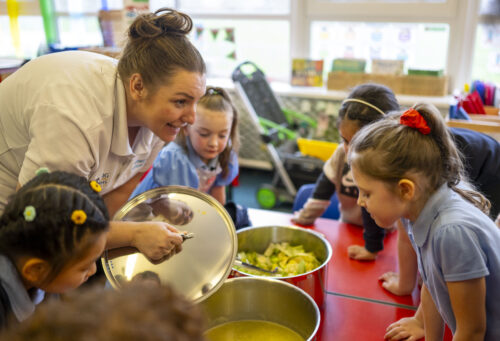 Emma Holmes, Strategic Lead for Community Dietetics at Cardiff and Vale University Health Board says: “Cardiff and Vale Dietetics are pleased to have the opportunity to work with our new partners from the Instituto Maniva in Brazil as well as ongoing partnership with the local education system and Food Sense Wales. It has enabled us to build on our existing good work in schools across Cardiff and the Vale, and has improved focus on food culture, local produce and sustainability, which supports the new elements of the Curriculum for Wales, while encouraging a healthy balanced diet for children and their families.”
Emma Holmes, Strategic Lead for Community Dietetics at Cardiff and Vale University Health Board says: “Cardiff and Vale Dietetics are pleased to have the opportunity to work with our new partners from the Instituto Maniva in Brazil as well as ongoing partnership with the local education system and Food Sense Wales. It has enabled us to build on our existing good work in schools across Cardiff and the Vale, and has improved focus on food culture, local produce and sustainability, which supports the new elements of the Curriculum for Wales, while encouraging a healthy balanced diet for children and their families.”
Carwyn Graves helped developed the Leekit and explains: “Although so many fruit and vegetables have rich cultural connotations for us here in Wales – from the leek to local apple varieties and even the humble spud – too many children grow up today without a sense of what this fantastic produce can do for them. It’s a real privilege to work with this partnership to put some of our local produce back on the table for kids, and to hopefully show how the Welsh leek can open young minds to a world of culture, science, art – and tasty meals.
“With the project being delivered during the week of St David’s Day,” he continues, “what better time to welcome our Brazilian colleagues and to start connecting what we eat with a wider, mindful awareness of where’s it’s come from?”
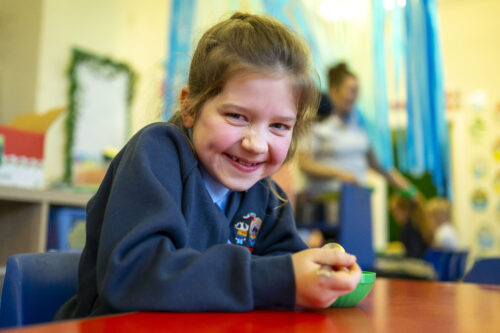 Teresa Corção from the Mainva Institute adds: “For us, Brazilians, it’s an honour to create this partnership with Food Sense Wales, Katie and all the Wales team. We have learnt so much already, exchanging knowledge from our indigenous food culture, cassava, to theirs, leeks. I am sure many good things will come from this in the future.”
Teresa Corção from the Mainva Institute adds: “For us, Brazilians, it’s an honour to create this partnership with Food Sense Wales, Katie and all the Wales team. We have learnt so much already, exchanging knowledge from our indigenous food culture, cassava, to theirs, leeks. I am sure many good things will come from this in the future.”
For further information, please visit the Food Sense Wales website: Food Sense Wales: Co-creating a food system for Wales that’s good for people and the planet – foodsensewales.org.uk
ENDS
About the Maniva Institute
Founded by eco-chef Teresa Corção in Rio de Janeiro in 2007, Instituto Maniva is a pioneering organization in Brazil in working with gastronomy as an instrument for sustainability and working in eco-gastronomy. The team’s commitment is expressed in the Institute’s mission: to value traditional foods and rebuild lost ties between small and medium-sized farmers, their products and consumers to allow the construction of trusting relationship networks and, in this way, promote a fair and increasing income and well-being for all.
Maniva is a member of CoFSA and in its almost 20 years of activity it has developed projects along two lines: Education of Taste, created as a result of Teresa’s involvement with the Slow Food movement and with the aim of creating, among other benefits, food awareness; and Farmer’s Partner, which clearly expresses Maniva’s mission of being a bridge between family farmers, chefs and consume.
About CoFSA
The Conscious Food Systems Alliance (CoFSA), supports people from across food and agriculture systems to cultivate the inner capacities that activate systemic change and regeneration. The Conscious Food Systems Alliance (CoFSA), convened by UNDP, is a movement of food, agriculture, and consciousness practitioners united around a common goal: to support people from across food and agriculture systems to cultivate the inner capacities that activate systemic change and regeneration. It aims at establishing the cultivation of inner capacities as a key evidence-based approach to envision and create regenerative food systems, while building legitimacy and understanding for this approach.

